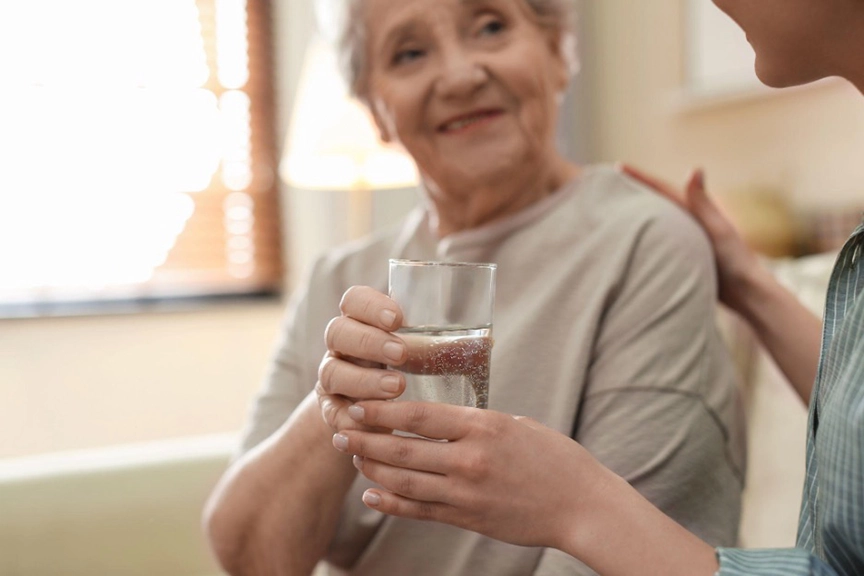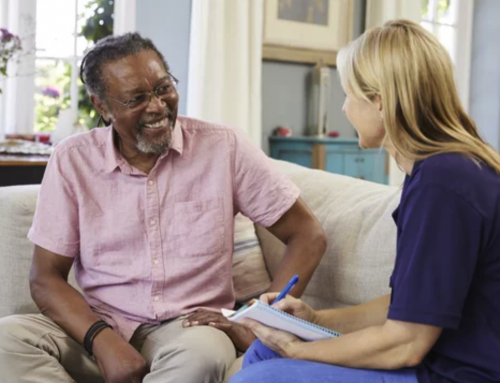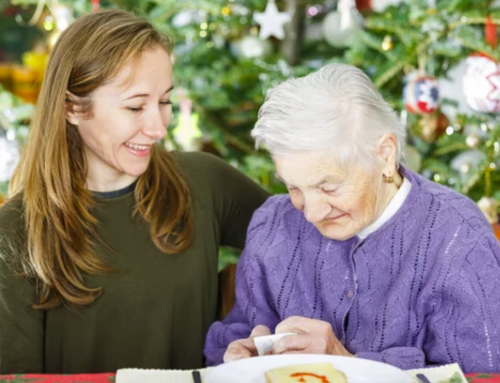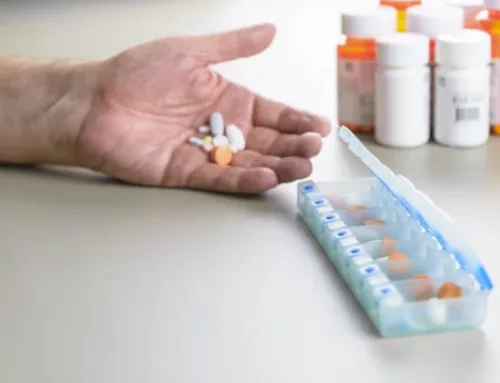Home Health and Hospice patients are prone to dehydration. Let’s explore why that is and the problems that dehydration may cause. You will learn how to recognize signs of dehydration. Then provided below are tips for ensuring your loved one gets enough liquids. Dehyrdation at the end of life will also be discussed.
Is your loved one at risk of dehydration?
Fluids are essential for good health. The amount of liquids required depends on age, climate, health, and activity level. Some individuals must limit their fluid intake because of heart, lung, or kidney disease. If the person has swallowing problems, such as after a stroke or when very weak., they may need thickened liquids. Most people who receive Home Health and Hospice services are at risk for dehydration because of several factors. Talk to your loved one’s doctor, nurse, or dietitian for individualized guidance.
Common causes of dehydration may include:
Why it is vital to prevent dehydration
Being thirsty or dehydrated isn’t just uncomfortable. It creates many health issues. Dehydration can be life-threatening when extreme. Dehydration doesn’t just generate a loss of water from the body. Important compounds, called electrolytes, are lost. They play important roles in the functions of organs Electrolytes impact blood pressure, cardiovascular wellness, muscle health, kidney function, and many other processes in the body. Electrolytes, such as sodium, must be precisely balanced for optimal health. Dehydration can contribute to:
Signs and Symptoms of dehydration
Age affects the signs and symptoms of dehydration. Thirst doesn’t always indicate the body’s need to drink water. Older adults may only feel thirsty when they are already dehydrated. If you are concerned that your loved one may be dehydrated, notify the Home Health or Hospice provider promptly. Severe dehydration is a medical emergency that needs immediate treatment.
Signs and Symptoms of dehydration in babies and young children:
Signs and Symptoms of dehydration in adults:
Easy Ways to Prevent Dehydration
All fluids add water to the body. Many people do not like the taste of water so provide other fluids. Here are some additional tips that you can employ:
Here are additional tips to help your loved one stay hydrated:
Dehydration during the final days of life
Consult with a hospice nurse or physician regarding dehydration during the last stages of life. It is treated differently than at other times. Hospice experts recognize that dehydration may help to reduce pain and suffering. The body releases endorphins, which are natural pain relievers. Artificial fluids are not given as they increase strain on the heart and make breathing harder. When people enter the final stage of life, they are not thirsty or hungry. Eating and drinking take too much energy. The emphasis is on comfort, not reversing dehydration or prolonging life. It can be tough to accept that it is normal and even beneficial for a loved one not to eat or drink at the end of life. The previously valuable actions are not appropriate or advised anymore.
Contact Smoky Mountain Home Health & Hospice
Since 1982, we’ve helped thousands of patients in East Tennessee receive high-quality home health care. If you’re interested in our home health or hospice services, call us at (423) 623-0233. You can also use the contact form on our website to connect with a member of our team. We look forward to serving you!






